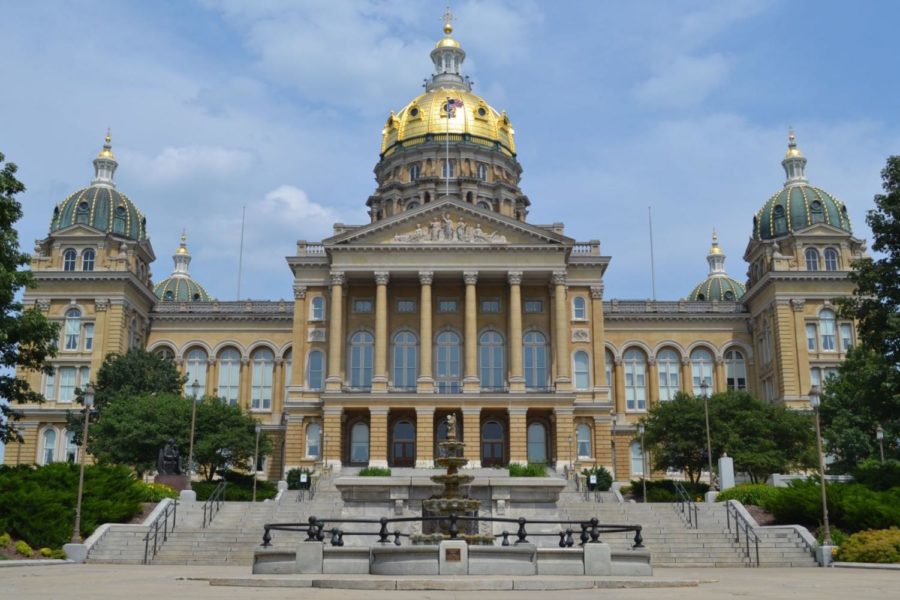Iowa’s ACLU challenges “ag gag” law
State funding cuts leave Iowa universities in a tough spot. They’ll either have to increase tuition or face other consequences.
October 11, 2017
On Monday, the American Civil Liberties Union (ACLU) of Iowa, in conjunction with a broad coalition of public interest groups, filed a lawsuit against the state’s “ag gag” law.
In addition to prohibiting individuals from damaging farm facilities and harming animals, the law criminalizes individuals who submit false information on a job application to become employed at a farm operation.
As noncompliance is classified as a misdemeanor, violators may serve up to one year in jail.
“There’s no doubt that these laws were passed to protect the industry from what was really seen as portraying it in a false light,” said Kristine Tidgren, assistant director for the Center of Agricultural Law and Taxation at Iowa State.
Collectively, ag gag laws have been drafted in response to actions made by the Humane Society of the United States and Mercy for Animals following their release of videos that captured graphic footage from farm operations.
In a statement issued by the ACLU, Rita Bettis, legal director for the Iowa chapter, said “An especially grievous harm to our democracy occurs when the government uses the power of the criminal laws to target unpopular speech to protect those with power—which is exactly what this law is about. Ag gag clearly is a violation of Iowans’ First Amendment rights to free speech.”
The seven states who currently have an ag gag law in place prohibit the act of videotaping, photographing or recording footage on farms in an undercover manner. In contrast, Iowa’s law strictly criminalizes the act of obtaining a job with a farm operation by offering false information on an application.
In 2015, the state of Idaho’s ag gag law was ruled unconstitutional on the premise of it being a violation of free speech. In addition, a federal court ruled Utah’s ag gag law unconstitutional in July, citing the same grounds.
“Laws must be ‘narrowly tailored’ to avoid impairment of fundamental rights like freedom of speech and freedom of the press,” said Dirk Deam, professor of political science at Iowa State.
Due to the fact that Iowa’s law does not directly concern the First Amendment, unlike other states, striking down the law on the grounds of it being a violation of free speech is not necessarily the interpretation that will be made by the court, Tidgren said.
“The ag gag law is an unusually broad statute,” said Kristen Lowe, senior in agriculture and society and public relations. “With it penalizing the use of false pretenses to gain access to an agricultural production facility, it reaches into uncharted territory that many might not have previously thought about.”
In previous rulings, the U.S. Supreme Court has concluded that false statements made by individuals are not protected by the First Amendment’s right to freedom of speech. Determining whether or not lying on a job application is protected by the First Amendment will be the ultimate question for the court to address, Tidgren said.
In addition to the task of determining the constitutionality of the law, an ethical predicament has also presented itself within the matter.
“Is it constitutional to be invited to a farm as a tourist when you’re actually a journalist and capture footage of laying hens? Absolutely. Is it ethical? No. If you want to report the truth, you should start with providing the truth about yourself,” Lowe said.
When it comes to considering solutions that would appease both animal-welfare interest groups and the animal production industry, reaching common ground is tough, but, producers have worked to accommodate the public’s demand to see how food is being produced in a transparent manner.
“The industry definitely responds to consumer demand,” Tidgren said.
















